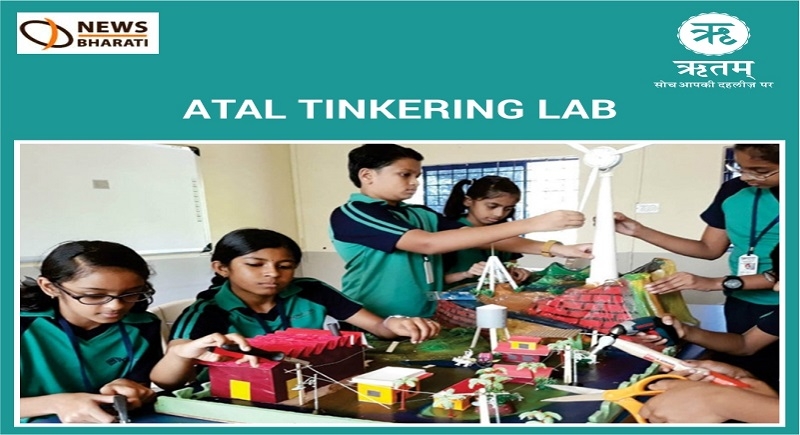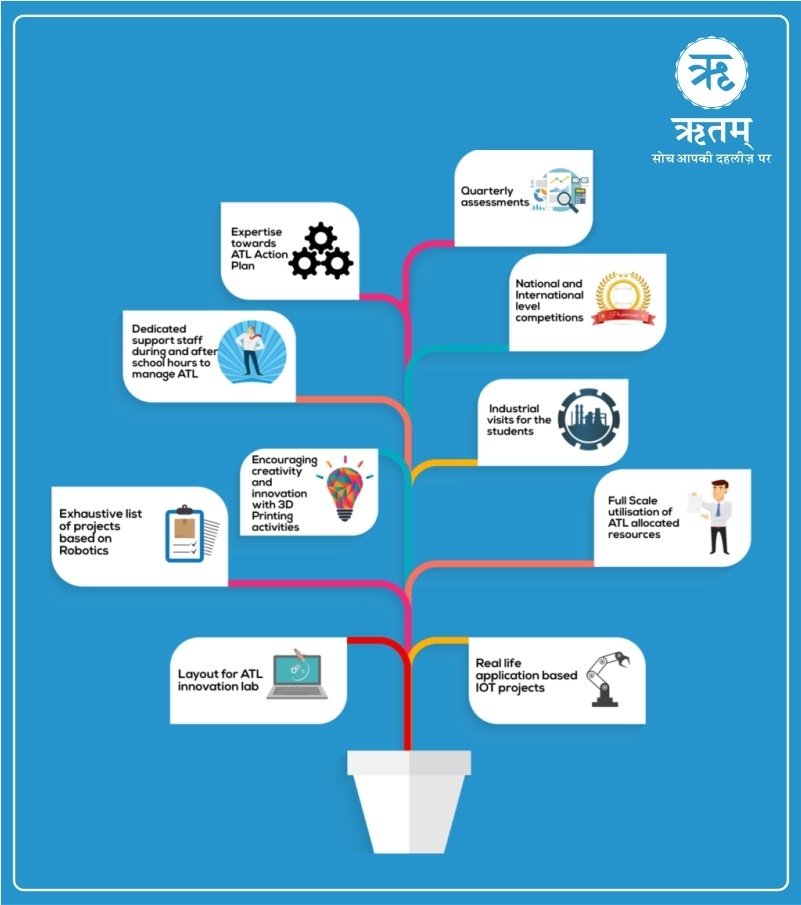The mission to transform India into an innovative country: Atal Tinkering Labs
Atal Tinkering Labs have dedicated workspaces where students from Class 6th to Class 12th learn innovation skills and develop ideas that will go on to transform India. The labs are powered to acquaint students with state-of-the-art equipment such as 3D printers, robotics and electronics development tools, or internet of things and sensors.

Students already exposed to creative technology platforms to nurture their curiosity, creativity and imagination through ATLs in their schools, have started designing prototype solutions and launched creative projects such as better irrigation management, waste management and sensor-based solutions using robotics in their labs, a statement from NITI Aayog said in December 2017.
With a view to give a substantial boost to the innovation ecosystem and to catalyze the entrepreneurial spirit in the country, Finance Minister in his Budget Speech of 2015-16 announced the Government's intention to establish the Atal Innovation Mission (AIM) with an initial sum of Rs. 500 crore and Rs. 1000 crore respectively.
The Union Cabinet chaired by the Prime Minister Narendra Modi has given its approval for the establishment of Atal Innovation Mission (AIM) and Self Employment and Talent Utilisation (SETU) in NITI Aayog with appropriate manpower on 24th of February 2016.
This project has flourished in recent days as private companies show interest to nourish this project and give a boost to support students’ aims to dream as an innovator.
NITI Aayog’s Atal Innovation Mission (AIM) and Adobe on 27 February 2019 signed a Statement of Intent (SOI) to collectively drive the charter of developing creative skills and spreading digital literacy across all Atal Tinkering Labs in India. The SoI was signed in the presence of Amitabh Kant, CEO, NITI Aayog, by Ramanathan Ramanan, Mission Director, Atal Innovation Mission, and Kulmeet Bawa, Managing Director, Adobe South Asia.
Adobe shall be implementing its Digital Disha Program in ATL, under which free licenses of Adobe Spark premium shall be offered to ATLs. Launched in 2018, the Adobe Digital Disha Programme is aimed at driving synergies in creative thinking and technology-based learning.
The lab activities are designed to spur the spark of creativity and go beyond regular curriculum and textbook learning. The labs will let students explore skills of future such as design and computational thinking, adaptive learning and artificial intelligence.
Students were eagerly waiting inside the lab for the workshop to begin. In fact, they expressed their interest to visit the tinkering lab more often, but could not do so because of their extra classes and exam pressure. And in a few minutes, Jim who had flown from Stanford University arrived with a huge box full of the 100 microscopes. Yes, these are paper microscopes that weighed no more than 10 gram each. Can you imagine carrying those old conventional bulky microscopes outside the Biology lab? Well, this is the power of frugal innovation that paper microscopes now cost less than Rs 200 INR, and can be carried around almost everywhere. These have been developed at the Prakash Lab, Stanford University. Students started assembling the microscopes, took them about 30-45 minutes to do so. And finally, they were all immersed in a whole new ‘micro-innovative’ world. And that was the moment when two girl students stood up and expressed how they felt:
‘Ma’am, we want to come more often to this Atal Tinkering Lab and we want more such Do IT Yourself (DIY) workshops, it makes us believe that we can be an innovator too!’
Such moments are what inspire the ATL team to work harder, to give equal opportunity to all students to learn and experience technology innovation. Such are the kind of experiences that Atal Tinkering Labs are providing to thousands of students across the country. Young children will get a chance to work with tools and equipment to understand what, how and why aspects of STEM (Science, Technology, Engineering, and Math)
This is one example shows how Atal Innovation Mission is working at the grassroots level in different parts of the country. With Atal Tinkering Labs, to help students and teachers transform into innovators, develop an entrepreneurial mindset, which will pave the way forward for developing a ‘New India’ by 2022.
“We are keen on providing children with the best technology, keeping in mind global standards. Within the next two years, we will include artificial intelligence and blockchain technology,” said R Ramanan, mission director, AIM. The Government has planned to install 10,000 ATL’s across the country by 2020.
As per data revealed in January 2019, there are more than 300 Atal Tinkering Labs in Karnataka, making it one of the most successful states to install ATL’s. “Other states that are leading with ATL’s are Andhra Pradesh, Tamil Nadu and Maharashtra,” Ramanan added.
ATLs are supported by AIM and focus on a do-it-yourself mode of learning and development.

NITI Aayog's Atal Innovation Mission (AIM) and UNICEF India, have come together in 2018 on Children's Day, to provide an open platform to young children of India, to contribute towards sustainable development. Celebrating innovation on the occasion of the National Children's Day, the UNICEF - Atal Tinkering Labs Young Champions Awards were announced November 14, 2018, by Dr Rajiv Kumar, Vice-Chairman, NITI Aayog and Mr Yuri Afanasiev, UN Resident Coordinator and UNDP Resident Representative in India.
On October 2, 2017, AIM's Atal Tinkering Labs (ATL) had launched a six month long nationwide challenge called the Atal Tinkering Marathon, across six different thematic areas, namely, clean energy, water resources, waste management, healthcare, smart mobility and agri-technology.
From over 650 innovations received, Top 30 innovations were identified from 20 different States and Union territories from across India.
AIM and UNICEF have also launched a 72-hour Tinkering Hackathon from November 14 to 17 in 2018 so that children can come up with innovative solutions for challenges faced by them in school, especially pertaining to quality of education and safety in schools.
The Atal Innovation Mission proactively seeks to promote scientific temper and the spirit of entrepreneurship in a New India of tomorrow. Through various initiatives such as the ATL Community Day, Teacher Training Sessions, ATL Marathon, Student Innovator Program, Tinkerfest etc. AIM has successfully integrated students, teachers, mentors, parents and even the governments at the state and local level within a larger fabric of encouraging science skills, digital literacy and creativity.




